
So it’s eight o’clock on a morning and you’re perched on the end of the eldest son’s bed while the lazy toad has you wait on him hand and foot, discussing the merits of beard oil, the latest blog post and the concept of infinite regress. So far so good. It is all going well until you start talking about observing yourself observing and the whole issue of dream versus reality. You mention the bit about the reality of the dream translating into what feels like a reality for one part of consciousness, while the other knows it for an impossibility.
“So, one sane part and one… not.”
“Sort of. But then there is the other part observing the two and laughing at both of them.” At this point I notice a wicked gleam in his eye and fingers being held up to count… I should have stopped there… “Then you become aware of yet another observer observing…” Another finger goes up. “Ad infinitum.” Both hands now…
“Multiple levels of consciousness then.”
“Yep.”
“And most of them accepting an impossible unreality…”
“Er…”
“…and therefore not sane…”
“…sigh…”
“You know what that means…” He makes a show of dialling an ambulance…
“You’re going to tell me anyway…”
“It means you are clearly insane.” This from a man storing combs in his beard? “A schizophrenic hobbit.”
Being out of range of something appropriate to throw, I brandished the camera. It seemed only fair.
We discussed the nature of consciousness and the survival beyond death. Which brought us to memory and why we do not remember our earliest childhood as a rule. I posited the theory that while everything is a ‘first’ in those earliest months and we cannot relate events to known emotions or a personal sense of self, we have no frame of reference with which to encapsulate memory.
“But surely if they are there we can frame them retrospectively with subsequent experience?”
“Possibly.“ This led on to regressive hypnosis, then we talked about the development of the brain itself, of language and the emotional content of memory… of how memories may be available but simply not accessible by the usual means we recall events. He posited that we may block memory as a protection against recalling the traumatic upheaval that is the process of physical birth. We discussed those dreams… nightmares… of long, dark, claustrophobic tunnels in which we are afraid and what they might refer to… Not bad from a man combing toast out of his beard.
“Think about it, it is all warm and cosy and you are just getting to grips with being in your world then it all changes.”
“… And if birth is so traumatic that we block the memory, couldn’t that apply to death too? Which is another transition?”
“Hmm… more Nerk stuff…”And from there, of course, the conversation continued to the survival after death, karma and reincarnation. “Another coffee, hobbit…”
That’s one of the things I love about writing. No, not the coffee… though that too, of course, the one wouldn’t happen without the other! A few words can spark a whole discussion, ideas are shared and expanded, discarded, adapted, expounded… and real eye-to-eye communication ensues.
What’s not to like? Apart, perhaps, from the aspersions cast upon my sanity… oh well, I’m in good company.


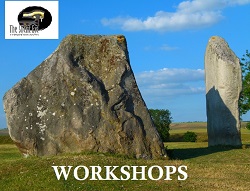

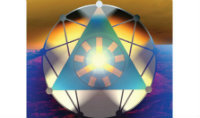





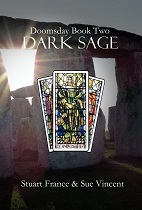








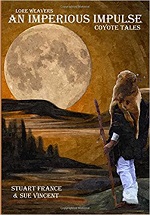




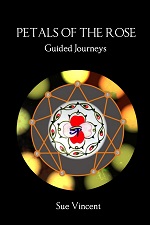






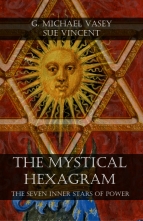

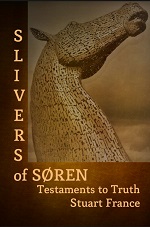


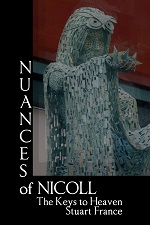


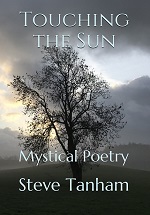

So many questions LOL
I need answers!!!
LikeLiked by 2 people
you’re not on your own there, Richard 🙂
LikeLiked by 1 person
Reblogged this on Thoughts by Mello-Elo.
LikeLiked by 2 people
When we did antenatal classes we shared the session with 2 committed rebirthers who were convinced the hypnosis they planned to take them back to the moments of their birth and face what it was like would help them empathise with their child’s experience. I never did find out what happejed
LikeLiked by 2 people
It would be interesting to know…it isn’t a concept I’ve come across before!
LikeLike
My goodness me, Sue, what a way to start the day. Some people claim they do have memories from their infant days.
LikeLiked by 1 person
Mine go back early, but not quite that far…or not consciously at least.
LikeLiked by 1 person
I just read a science article on infant memory – or lack of same until approx. 2 or 3 for most of us. Apparently the brain is not developed for cognition initially, and consolidation into long-term memory doesn’t seem to happen reliably in very young children.
What’s interesting, however, is that events are stored in some fashion science doesn’t yet understand in most infants – at least in infant mice – but mostly of emotional states. Fear of a place, for example, where a mouse was shocked, can be reactivated by a shock administered in a completely different environment only a bit later. Until then, the baby mice show no fear of the original location – afterwards they refuse to enter it.
Conclusion: never a good idea to stick a fork in a toaster to dislodge stuck toast. Who knows what you’ll dredge up. 🙂
xx,
mgh
LikeLiked by 3 people
btw – they are studying this to see if it has implications for anxiety disorders.
xx, mgh
LikeLiked by 2 people
Very interesting, Madelyn. My older son had eighteen operations between the ages of 1 year and 6 years old. He has a memory of the third (and most traumatic by far) operation and the issues that followed for him. He remembers the catheter which he used to call a pain killer … he does still remember that term. He has been diagnosed with post traumatic stress syndrome. I am writing a book about it but have to take breaks as the writing dredges up a lot of anxiety and heart break from me.
LikeLiked by 2 people
I’m so sorry to read about your son’s PTSD, Robbie – I know that sneaky struggle personally. I can only imagine the heartbreak you (and Sue) endured as you watched your children struggle to recover, helpless to do much but love them through it – and pray, perhaps.
I’ll see if I can find a link to the article I mentioned before its gone from my history. I’m sure you would find it interesting as well, and it might give you additional perspective as you write. I’ll leave it on an article on your blog if/when I find it.
xx,
mgh
LikeLiked by 2 people
Found it – left it under the post with the Roundy Twins, Robbie. Happy to share here too, Sue, if there’s interest.
xx,
mgh
LikeLiked by 2 people
Thank you, Madelyn. I appreciate your making the effort to find the article and leave the link.
LikeLiked by 2 people
You are most welcome, Robbie. I’m glad you find it useful.
xx,
mgh
LikeLiked by 2 people
Thanks, Madelyn, I’ll pick the link up from Robbie’s post!
LikeLiked by 2 people
I loved this conversation
LikeLiked by 2 people
There are conversations like this most days… I could it very much a privilege 🙂
LikeLiked by 1 person
Sue, you and your son are amazing. My big question in the morning is should I have toast or not?
LikeLiked by 2 people
We generally have the toast to fuel the conversation 😉
LikeLike
I think it’s a writer thing. We see and we observe and we have observers observing the observers and somewhere, a commentator explaining it all so you can write it up later, should you so desire. It’s what makes like so interesting.
LikeLiked by 1 person
I think you are right that writers and artists observe more acutely, but I do think there is more to it than that.
LikeLiked by 1 person
And I thought some of the conversations I have are surreal… On the plus side, they’re usually with myself
LikeLike
Ah, not you see…I have a witness to my weirdness 😉
LikeLiked by 1 person
Excellent post, Sue. Much to ponder and discuss. Dominoes, with one idea opening a door of questioning, or discussing. Heady stuff, good stuff.
LikeLike
I can’t think of many better ways to start the day 🙂
LikeLiked by 1 person
I love this conversation, Sue 🙂 Nothing like a bit of deep pondering and multi-level consciousness, complete with aspersions about your sanity, first thing in the morning, especially with someone who has toast in his beard! 🙂
LikeLike
Toast and combs… he isn’t one to do anything by halves 😉
LikeLiked by 1 person
😀
LikeLiked by 1 person
Derek!
LikeLike
You may have to explain 😉
LikeLiked by 1 person
Predictive text! it should of read Eeeek!! I was referring to the painful photo of combs in the beard!! I am still giggling… Derrick indeed 😎 💜
LikeLike
LOL!
He just popped the combs there for storage 😉 x
LikeLiked by 1 person
Lol 😎💗
LikeLiked by 1 person
What a treasure trove of thoughts! This takes me back to the days when my own sons were at home, except they most often wanted to talk late at night. No matter how tired I was or how late the hour or how early I had to be up, I cherished these talks.
LikeLiked by 1 person
So do I…whether they are in person or over the phone 🙂
LikeLiked by 1 person
Absolutely! Either way works for me.
LikeLike
Yep 🙂
LikeLiked by 1 person
I love those types of conversations where the more you try and make sense of them, the morre questions are thrown up!
No-one can accuse Nick of having a tatty beard with TWO combs attacking it! 🙂
LikeLike
So do I…:)
No, he is most beautifully ‘coiffed’ at present after a visit to the barber too 🙂
LikeLiked by 1 person
Interesting to ponder about. That is exactly the effect posts like this have on me. My take on why we have so few early life memories is based on what I learned from Bruce Lipton, who tells us that a childrens brain works on a different wavelength in the first 6 years of life. This is almost like a meditative state which enables the child to absorb information from their environment without judgment.
They absorb how the parents, siblings and others around them act in different situations, how to talk, walk and many desirable and unfortunately also undesirable things and habits. All This information goes straight into the subconscious mind.
There lies the clue, this is an area of our mind that we are not consciously aware of and therefore do not remember much of that period of our lives.
LikeLiked by 1 person
Yet the memories are all registered there. Memory is a facinating area to ponder…or sudy. With my son’s injuries, we saw its workings up very close. We came to the conclusion that every single thing is retrievable…if you have the right trigger or key to unlock the memory.
LikeLiked by 1 person
Fascinating post. Fascinating comments. I’m glad I didn’t skip this one. it gave me lots to think about. Thanks!
LikeLike
Thanks, Rae. Glad you enjoyed it 🙂
LikeLike